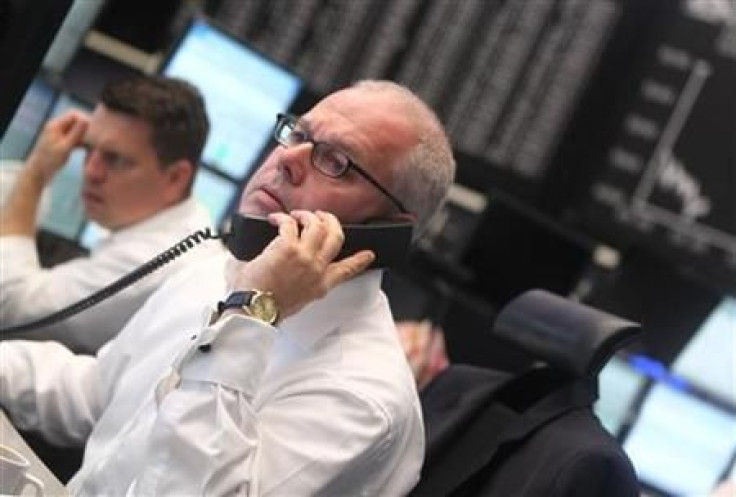European Markets Fall On Weak Japan Data

Most of the European markets fell Monday as investors were disappointed to note that the economic growth slowed down in the second quarter in Japan indicating that the global economy continues to falter.
The French CAC 40 index fell 0.20 percent or 6.76 points to 3428.86. Shares of Accor SA dropped 0.83 percent and shares of Technip SA declined 0.64 percent.
London's FTSE 100 index was down 0.20 percent or 11.94 points to 5835.17. Shares of Shire PLC fell 1.06 percent and those of Aviva PLC were down 0.74 percent.
The German DAX 30 index dropped 0.10 percent or 7.19 points to 6937.37 Shares of Volkswagen AG fell 0.74 percent and those of Daimler SE declined 0.73 percent.
Spain's IBEX 35 was marginally up 0.03 percent or 1.80 points to 7049.50. Shares of Abengoa SA advanced 2.02 percent and shares of Repsol SA rose 0.73 percent.
Market sentiment turned negative to note that Japan's economic growth slowed down in the April-June quarter compared to the first three months of the year. According to data released by the government Monday, Japan's economy grew at 0.3 percent in the second quarter down from 1.2 percent in the first three months of the year. The data also showed that the economy grew at an annualized rate of 1.4 percent in April-June down from 5.5 percent in the previous quarter.
Investors sense that there is an urgent need for the Bank of Japan (BoJ) to announce monetary easing measures to rejuvenate the country's economy and boost its financial condition. But last week the BoJ kept its key policy rate unchanged and refrained from announcing any monetary easing measures. The central bank kept the policy rate between 0 and 0.1 percent and also left the asset purchase program (APP) at 70 trillion yen ($891 billion).
Meanwhile, another major worrying factor is the strengthening of the yen, which has appreciated sharply against the euro to its highest level since 2000. The revival of the euro zone crisis has prompted a renewed flight to safe investment opportunities like the Japanese yen.
© Copyright IBTimes 2024. All rights reserved.











